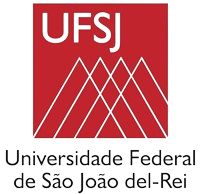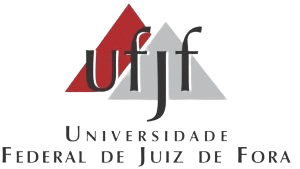PLENÁRIAS
08/11/2022 Horário: 10:00h às 11:00h
Nelson Maculan Filho
Nelson Maculan Filho
Palestra/Lecture:
A pesquisa operacional em tempo de pandemia
Professor Emeritus, Dept. of Systems Engineering and Computer Science, Graduate School of Engineering (COPPE) – Dept. of Applied Mathematics, Institute of Mathematics, Federal University of Rio de Janeiro (UFRJ).
Full Member of the Brazilian Academy of Sciences
Full Member of the National Academy of Engineering (Brazil)
Full Member of the European Academy of Arts, Sciences and Humanities (Paris)
Fellow of the TWAS – the Academy of Sciences for the Developing World (Italy)
Full researcher (1A) in Computer Science at CNPq (the National Council for Research, Brazil)
RESEARCH INTERESTS:
Optimization, Operations Research, Computer Science, Numerical Analysis, Applied Mathematics, Bioinformatics, Data Science.
Resumo da Palestra:
Estamos vivendo ainda uma pandemia, que nos obriga a encontrar soluções muito rápidas visando à defesa da vida. Temos um problema complexo de logística, necessitando dos métodos científicos associados à pesquisa operacional. Discutiremos uma grande parte da organização dos sistemas de vida urbano e do campo, nos quais os métodos de pesquisa operacional têm que ser utilizados: distribuição de bens essenciais; saúde; entrega de vacinas e remédios; abastecimento de água, gás, energia elétrica; limpeza; redes de telecomunicações; serviços de segurança (polícia e bombeiros); etc. Não devemos nos esquecer da manutenção e do estímulo à educação e cultura por meio dos sistemas de comunicação a distância (televisão, internet).
08/11/2022 Horário: 11:00h às 12:00h (Virtual Talk)
Laura Albert
Laura Albert
PALESTRA/LECTURE:
ADVANCING THE FUTURE OF OPERATIONS RESEARCH
Laura Albert, Ph.D., is a Professor and the David Gustafson Department Chair of Industrial & Systems Engineering at the University of Wisconsin-Madison. Her research interests are in the field of operations research, with a particular focus on discrete optimization with application to homeland security and emergency response problems. She has authored or co-authored more than 70 publications in archival journals and refereed proceedings. She has been awarded many honors for her research, including the American Association for the Advancement of Science (AAAS) Fellow Award, Institute of Industrial and Systems Engineers (IISE) Fellow Award, the INFORMS Impact Prize, a National Science Foundation CAREER award, a Fulbright Award, and a Department of the Army Young Investigator Award. Professor Albert’s research has been supported by the National Science Foundation, the Department of Homeland Security, the Department of the Army, and Sandia National Laboratory. She is the President-Elect of INFORMS and the author of the blog “Punk Rock Operations Research.” She is also a passionate advocate for diversity and inclusion in engineering and operations research. You can find her on twitter at @lauraalbertphd.
09/11/2022 Horário: 10:00h às 11:00h
Jeffrey English
Jeffrey English
Palestra/Lecture:
QUBO approach to combinatorial optimization problems with Fujitsu Digital Annealer
Dr Jeffrey English is a lead operations research scientist at Fujitsu Intelligence Technology in Vancouver, Canada. He currently works on defining, building, and deploying optimization models using Fujitsu’s Digital Annealer technology. His recent projects have focused on scheduling problems in the telecommunications, health care, and manufacturing industries. Prior to joining Fujitsu, he worked as a resource planning engineer at BC Hydro as a member of the resource planning modelling group. He completed his PhD at the University of Victoria with a focus on modelling and optimization of power systems with high levels of variable renewable generation.
Resumo da Palestra:
Combinatorial optimization involves selecting the best option from the combination of several factors. As the number of factors increases, the number of possible combinations increases exponentially, often resulting in unpractical solution times for many problems in general-purpose computers. Fujitsu developed the Digital Annealer, a quantum-inspired architecture to solve combinatorial optimization problems in their quadratic unconstrained binary optimization (QUBO) form. This talk provides and introduction the QUBO approach to combinatorial optimization problems, solution methods involving the Digital Annealer, and examples of recent applications of the Digital Annealer to solve problems in the healthcare and energy industries.
10/11/2022 Horário: 11:00h às 12:00h
Welington Luis de Oliveira
Welington Luis de Oliveira
Palestra/Lecture:
Probability functions in optimization models for energy management under uncertainty
W. de Oliveira’s research interests are focused on nonsmooth optimization, stochastic programming, and their application to the industry of energy. He holds a Ph.D. in System Engineering and Computer Science from the Federal University of Rio de Janeiro (2011) and an HdR (Habilitation) in Applied Mathematics from Université Paris 1 Panthéon Sorbonne (2018). He is currently an Associate Professor at the Center of Applied Mathematics of Mines Paris, Université PSL, and serves on the editorial board in a number of scientific journals in applied mathematics and operations research.
Resumo da Palestra:
Energy management is about efficiently employing resources to balance energy demands. With the increasing share of intermittent renewable sources of power generation, the need to handle uncertainty in such optimization problems has become of paramount importance for higher reliability and higher profitability. Although minimization of expected cost and maximization of expected income are the most common objectives, conservation of resources and climate protection gain protagonism as new legislation on the energy system evolution comes in. Unfortunately, in such a contemporary context, many stochastic energy management problems lack recourse, meaning that no corrective actions can be taken in the future to compensate for possible wrong decisions made today. The absence of recourse in stochastic optimization triggers the use of models involving probability functions. While such models are generally intuitive and straightforward to explain, they give rise to challenging optimization problems as probability functions are neither convex nor concave and often lack differentiability. Furthermore, accessing a multidimensional probability function amounts to evaluating numerically a multidimensional integral, a task that can be accomplished in reasonable CPU times only if precision is not a concern. For these reasons, specialized optimization methods must come into play. This talk will discuss two classes of stochastic programs: chance-constrained optimization and probability maximation problems. Our presentation will cover some basic concepts and properties of multidimensional probability functions along with some recent methods for nonconvex smooth and nonsmooth optimization problems involving a probability function.
11/11/2022 Horário: 9:30h às 10:30h
Rosiane de Freitas
Rosiane de Freitas
Institute of Computing – UFAM, Brazil
Palestra/Lecture: Colorings, polyhedral MILP, and modern network optimization problems
Rosiane de Freitas is a Brazilian computer scientist, Associate Professor at the Institute of Computing of the Federal University of Amazonas, Brazil. Leader of the CNPq research group on “Optimization, algorithms and computational complexity”, she coordinates projects in collaboration with research groups around the world, with an emphasis on combinatorial optimization, algorithms, game, graph and scheduling theory, and integer/constraint programming. Representative of Brazil at Latin American Center for Computer Studies – CLEI. Former Vice-President representing Latin America at the International Federation of Operational Research Societies, coordinating the Committee for Developing Countries, until 2021. R&D project leader with large high-tech industry. Active in competitive programming, being a member of the programming contests steering committee of the Brazilian Computer Society (SBC) with ICPC, and coach of Brazilian and world finalist teams. Active in HR training actions for basic education, women in STEM, and technological innovation. Rosiane writes playful texts in the form of short stories for the dissemination of computer science, programming, and STEAM content.
Resumo da Palestra:
In this talk, we deal with special graph colorings and polyhedral combinatorics for MILP formulations, to better solve channel assignment problems in artificial/real-world mobile wireless networks. We consider graph coloring problems involving distance constraints as weighted edges. Some more general graph coloring problems were proposed in the literature that constitutes models for real applications, such as channel assignment in mobile wireless networks. Hale (1980) proposed he generalized coloring problem (GCP) where, for each edge, the absolute difference between colors assigned to each vertex must not be in a given forbidden set, problem that was later named T-coloring. Also, the bandwidth coloring problem (BCP), is a special case of T-coloring where the absolute difference between colors assigned to each vertex must be greater than or equal to a certain value (Malaguti and Toth, 2010; Lai and Lu, 2013; Dias et al., 2017), and the coloring problem with restrictions of adjacent colors (COLRAC, GEOM), where there is a restriction graph for which adjacent colors in it cannot be assigned to adjacent vertices (Trick et al, 2002, Akihiro et al., 2002).
In our research, we proposed theoretical modeling based on distance geometry and defined a hierarchy of coloring problems that we called distance graph coloring problems (DeFreitas et al., 2019). Thus, the vertices of the graph are considered as embedded on the real line and the coloring is treated as an assignment of positive integers to the vertices, while the distances correspond to line segments, where the goal is to find a feasible intersection. We proposed mixed-integer and constraint programming formulations and showed feasibility and optimality conditions for some problems (Dias et al., 2021). We also propose implicit enumeration methods for some of the optimization problems based on branch-and-prune algorithms proposed for DGPs in the literature. A polyhedral combinatorics study was conducted to define a distance polytope and facet-inducing inequalities (Dias et al. 2018). We propose new variations of vertex coloring problems in graphs, involving a new theoretical model in distance geometry (DG) for vertex coloring problems with generalized adjacency constraints, promoting the correlation between graph theory and DG fields. We also give a characterization and formal proof of polynomial cases for special graph classes, since the general main problem is NP-complete. We have also been developing technologies for data collection, antenna location, network throughput, connectivity path assurance, navigation, and exploring modern digital telecommunication technologies, including 5G, in a technological innovation R&D project with a large multinational telecommunications company.
11/11/2022 Horário: 11:00h às 12:00h
André Luiz Diniz
André Luiz Diniz
Palestra/Lecture:
Desafios recentes para o planejamento energético: fontes renováveis intermitentes, resposta
da demanda, usinas reversíveis e armazenamento de energia.
É pesquisador e gerente de projeto do Departamento de Sistemas Elétricos (DSE) do Centro de Pesquisas de Energia Elétrica (CEPEL), tendo sido chefe do Departamento de Otimização Energética entre 2017 e 2021. Possui graduação em Engenharia Civil (1997), mestrado em Engenharia de Transportes (2000) e doutorado em Otimização pelo Programa de Engenharia de Sistemas e Computação (2007), todos pela UFRJ/COPPE. Em 2014 realizou pós-doutorado no Weierstrass Institute for Applied Analysis and Stochastics, na Alemanha. Tem experiência de mais de 20 anos em técnicas de otimização, programação matemática e estatística aplicadas ao planejamento e operação de Sistemas de Energia Elétrica, colaborando no desenvolvimento de metodologias e softwares utilizados no planejamento da operação do sistema brasileiro. É autor/co-autor de cerca de 100 artigos em revistas e congressos nacionais e internacionais, e participa como revisor e editor de periódicos em comunidades científicas como o IEEE, Informs e Cigré. É também professor adjunto do departamento de estatística da Universidade do Estado do Rio de Janeiro (UERJ) desde 2003.
Resumo da Palestra:
A maior penetração das fontes eólicas e solares mudou o paradigma do planejamento energético, requerendo uma ponte direta entre o planejamento de mais longo prazo e a programação diária, e trazendo desafios interessantes na modelagem e resolução dos problemas de otimização, tais como: o tratamento da incerteza e variabilidade horária das fontes intermitentes; a redução e deslocamento de cargas requerido por programas de resposta da demanda; a necessidade de modelagem de componentes adicionais como usinas reversíveis e dispositivos de armazenamento de energia; a resolução de problemas de unit commitment estocásticos. Esta palestra discute essas questões do ponto de vista conceitual e de modelagem, e como vêm sendo tratadas e podem ser aprimoradas nos modelos de otimização energética utilizados oficialmente para o planejamento, despacho e formação de preço no sistema elétrico brasileiro.
















